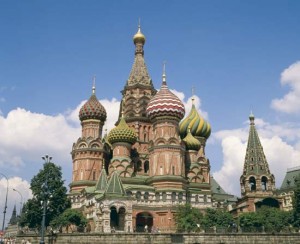
Evangelical Essentials (Part Twelve)
“Worthy is the Lamb who was slain. To receive power and riches and wisdom, And strength and honor and glory and blessing!â€
And every creature which is in heaven and on the earth and under the earth and such as are in the sea, and all that are in them, I heard saying:
“Blessing and honor and glory and power. Be to Him who sits on the throne, and to the Lamb, forever and ever!â€
Rev. 5:12-13 (NKJV)
During the early years of my Christian ministry, I desired to be a missionary to China. I read numerous biographies of James Hudson Taylor and the China Inland Mission. I studied the lives of the great men and women of Evangelicalism who suffered the loss of their own family members, friends, and fellow co-workers as they attempted to reach the areas of the world that did not know the gospel. Names like Watchman Nee (China), Amy Carmichael (India), C.T. Studd (Africa), Jim and Elizabeth Eliot (Ecuador), and Oswald Chambers (Egypt) resonated deeply within my spirit as people who loved Christ, walked in the Holy Spirit, and communicated the gospel clearly and effectively. God did not create an opportunity for me to go to China, but he did use that desire to burn within me the importance of sharing the gospel both near and far. In our self-centered culture, we often forget that God is on a mission, and if he is on a mission, then we are on a mission with him to make known the saving work work of Christ to every person, family, and nation.
Mission is the people of God intentionally crossing barriers from church to non-church, faith to non-faith, to proclaim by word and deed the coming of the Kingdom of God in Jesus Christ; this task is achieved by means of the church’s participation in God’s mission of reconciling people to God, to themselves, to each other, and to the world, and gathering them into the church through repentance and faith in Jesus Christ by the work of the Holy Spirit with a view to the transformation of the world as a sign of the coming of the Kingdom in Jesus Christ.
[Charles Van Engen, Missions on the Way: Issues in Mission Theology (Grand Rapids, MI: Baker Book House, 1997).]
There are the five parts of the Bible. The God of the Old Testament is a missionary God, calling one family in order to bless all the families of the earth. The Christ of the Gospels is a missionary Christ; he sent the church out to witness. The Spirit of the Acts is a missionary Spirit; he drove the church out from Jerusalem to Rome. The church of the epistles is a missionary church, a worldwide community with a worldwide vocation. The end of the Revelation is a missionary End, a countless throng from every nation. So I think we have to say the religion of the Bible is a missionary religion. The evidence is overwhelming and irrefutable. Mission cannot be regarded as a regrettable lapse from tolerance or decency. Mission cannot be regarded as the hobby of a few fanatical eccentrics in the church. Mission lies at the heart of God and therefore at the very heart of the church. A church without mission is no longer a church. It is contradicting an essential part of its identity. The church *is* mission.
[John Stott, “The Whole Christian,” Proceedings of the International Conference of Christian Medical Students, ed. Lee Moy Ng (London: ICCMS and Christian Medical Fellowship, 1980),  46.]




